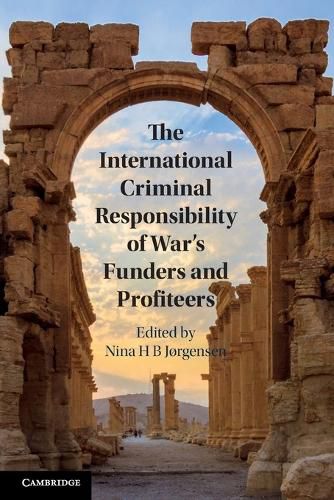Readings Newsletter
Become a Readings Member to make your shopping experience even easier.
Sign in or sign up for free!
You’re not far away from qualifying for FREE standard shipping within Australia
You’ve qualified for FREE standard shipping within Australia
The cart is loading…






This book is concerned with the commercial exploitation of armed conflict; it is about money, war, atrocities and economic actors, about the connections between them, and about responsibility. It aims to clarify the legal framework that defines these connections and gives rise to criminal or, in some instances, civil responsibility, referring both to mechanisms for international criminal justice, such as the International Criminal Court, and domestic systems. It considers which economic actors among individuals, businesses, governments and States should be held accountable and before which forum. Additionally, it addresses the question of how to recover illegally acquired profits and redirect them to benefit the victims of war. The chapters shine a critical light on the options provided by a network of laws to ensure that the ‘great industrialists’ of our time, who find economic opportunities in the war-ravaged lives of others, are unable to pursue those opportunities with impunity.
$9.00 standard shipping within Australia
FREE standard shipping within Australia for orders over $100.00
Express & International shipping calculated at checkout
This book is concerned with the commercial exploitation of armed conflict; it is about money, war, atrocities and economic actors, about the connections between them, and about responsibility. It aims to clarify the legal framework that defines these connections and gives rise to criminal or, in some instances, civil responsibility, referring both to mechanisms for international criminal justice, such as the International Criminal Court, and domestic systems. It considers which economic actors among individuals, businesses, governments and States should be held accountable and before which forum. Additionally, it addresses the question of how to recover illegally acquired profits and redirect them to benefit the victims of war. The chapters shine a critical light on the options provided by a network of laws to ensure that the ‘great industrialists’ of our time, who find economic opportunities in the war-ravaged lives of others, are unable to pursue those opportunities with impunity.